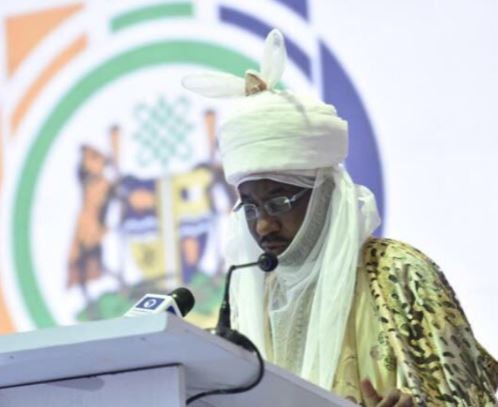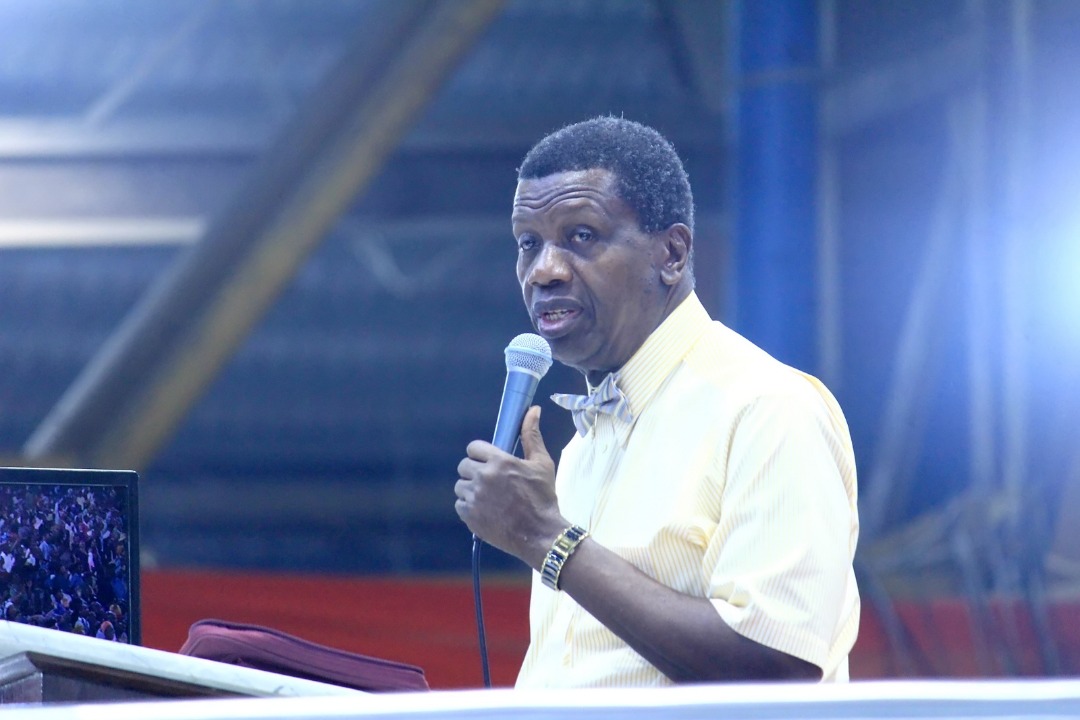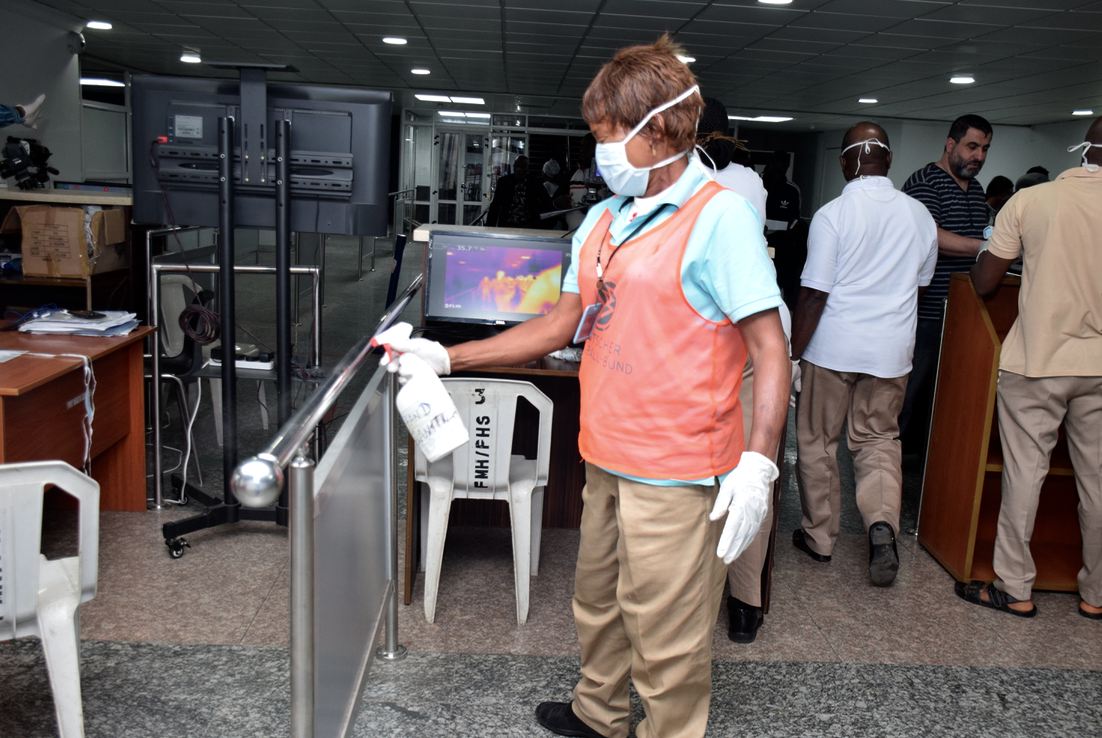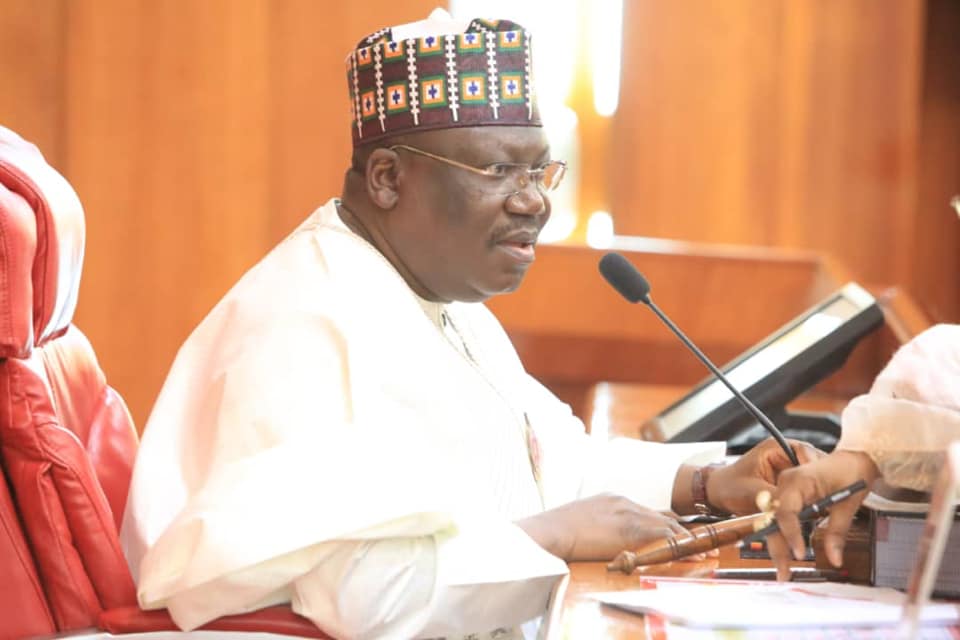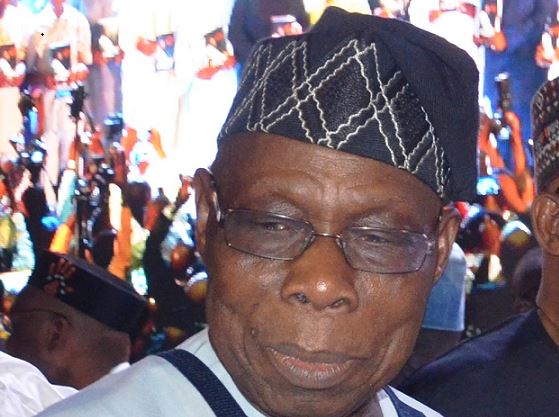Hopefully Prof Ango Abdullahi and his power mongering cohorts from northern Nigerian listened to the Emir of Kano, Muhammadu Sanusi II speak in Kaduna penultimate Monday.
At 82, Abdullahi, who is a former Vice-Chancellor of the Ahmadu Bello University Zaria, should ordinarily be one of those statesmen who seek the survival of Nigeria by all means possible. Why? He was one of those who were born before the country lost its promise.
Abdullahi and a few others of his generation walked the green of Nigeria and sucked the freshest milk from the country’ breasts while at their succulent best. It is therefore only godly that such people should, knowing what the past was like, do everything possible within their means to bestow a much better country on generations coming.
Such expectations are not outlandish, even when such men of history elect to lead regional bodies as Abdullahi does the Northern Elders Forum. At the twilight of peoples’ lives, it is only natural to expect that they aspire for nothing more than a legacy for which future generations of Nigerians will be proud of. And the most possibly profound of those legacies are those that show concern and empathy for the good of the people. But can we say that about Abdullahi?
Even when speaking for the north in line with the expectation of his office, this octogenarian professor of Agriculture is more interested in the political placements of a few rather than the overall development of the people on whose sweat the society exists at all. This logic, the futility of which I plan to return to presently is what Sanusi tried to preach at the 60th birthday celebration of Governor Nasir El-Rufai of Kaduna State last week.
Advertisement
Although Sanusi’s apostolic intervention did not start in Kaduna that hazy Monday morning, the event of the day provided an opportunity for an unusual clinical impact. Sitting in the room where His Vocal Majesty spoke to truth were the men and few women who hold power across every divide in Nigeria. Unlike the previous occasions when he spread the urgent gospel of paying attention to the living standard of the common man in northern Nigeria, everyone capable of effecting a start in this change was present.
So, Sanusi said, “If the north does not change, the north will destroy itself. The country is moving on. The quota system that everybody talks about must have a sunset clause…So, as we celebrate Nasir at 60, we need to celebrate him as a public officer who is addressing the core problems of his constituency. It’s education. It’s about girl child education, women’s rights, child begging, parental irresponsibility and demographic growth.
It’s also about managing a multicultural, multi-ethnic and multi-religious society and bringing them into one community where they are all citizens…. You don’t need to rise on being from Kaduna State or being from the north or being a Muslim to get a job. You come with your credentials, go with your competence and compete with any Nigerian from anywhere.”
Advertisement
While it would be uncivil to suggest that leaders of socio-political groups like Prof Abdullahi do not realise these obvious gaps in the developmental realities of the north, they have been largely self-serving in the quest for political power, such that they seem not to see the issues.
Earlier this month, for example, the Northern Elders Forum had called out the President, Major General Muhammadu Buhari (Retd.). The group addressed a press conference where it said the President had failed not just the north, but also the entire country. It spoke about the nexus between poverty and insecurity and ended its preachment by promising that it would only support a candidate with the interest of the north at heart in 2023.
Now, although it might not be the exact mindset of the group, the impression you get from “having the interest of the north at heart” is that the candidate must be from the north. The truth being that, the antecedents of these groups have shown a mind fixed on the assumption that no one can have the interest of the north at heart as much as someone from the region. It is a mentality that gives these people away as not having learnt anything from our immediately recallable history. We should interrogate this disposition.
By the end of Buhari’s current rule in 2023, it would be 63 years after Nigeria’s independence, a period within which the country has had 15 leaders, four southerners and 11 northerners. In 63 years, someone of northern extraction has ruled Nigeria for a cumulative of 44 years, but that has not helped the common man in any way.
As it stands today, northern Nigeria is the capital of poverty in the country. Just as it bears the highest rate of children not receiving education and girl-children forced into marriage. It is the bed of child malnutrition cum drug abuse and as a corollary, the hotbed of the most atrocious forms of anger against negligent society as evidenced by varieties of insurgencies and banditry.
Advertisement
When you consider the psychology behind threats to support only candidates with the interest of a region at heart, you then understand the parochial limitations of these regional leaders and their inability to comprehend the fact that everyone who desires to rule Nigeria must love every part of the country without exception. You will understand that these men desire nothing more than bragging rights. You also see reasons behind the obsessive interest in who seats in Abuja, while little or no attention is paid to the activities of governors on whose shoulders most of the decisions that would liberate the north rest.
It is good though that some governors in the north see the value of educating every child. Mallam El Rufai’s Kaduna is an example of such an awakening. Earlier this week, Governor Abdullahi Ganduje of Kano State also launched the Best Education Service Delivery for All programme by introducing 7,500 volunteer teachers, making education compulsory for all children and enabling the arrest of violators of the scheme. But more governors need to listen and embrace the values of education. While education is not an immediate solution to every problem, it is a powerful instrument capable of ultimately liberating people from the debilitating hold of poverty, lack, disease. Quality education can perpetually free people from the shackles of tradition and backward cultural practices that should not be spoken of in this age.
Late chief Obafemi Awolowo, thinker, politician and Premier of the old Western Region, repeatedly drew out the point about education to politicians of his generation. In Philosophy for independent Nigeria, a speech he delivered to some Nigerians studying in the United Kingdom in 1961, Awolowo lamented, “Education is still in its inchoate stages. The masses hunger after education. The position in the south is good, but it is very far from being so in the north. A little over 250,000 children are now receiving primary education in the north as against 1.3million in the east and 1.2 million in the west. Secondary education ought to be free, but only the well-to-do can afford to send their children to any post-primary schools. The award of scholarships tenable in institutions of higher learning and for technical and vocational studies, now lags very much behind the present need of the country, with the result that many a lustrous talent is wasting and rotting away either in a soul depressing job or in an asylum.”
That was where the rain started falling on the north. Except that, rather than take on depressing jobs, the angry children of those years have taken up arms against the country. Nigeria as a whole, not just the north, is currently suffering from the neglect of the children in years past. And unless something is done fast, the destruction, spoken of by Emir Sanusi will surely come to pass. The only other thing is that the north will obviously not suffer those consequences alone. It is the same rain that falls on the bad man, that ruins the parade of the good man. That is why, everyone should be worried. It may be seen as their problem now, but it will be only a matter of time before it becomes everyone’s problem.
Advertisement
Adedokun tweets @niranadedokun
Advertisement
Views expressed by contributors are strictly personal and not of TheCable.
Add a comment

